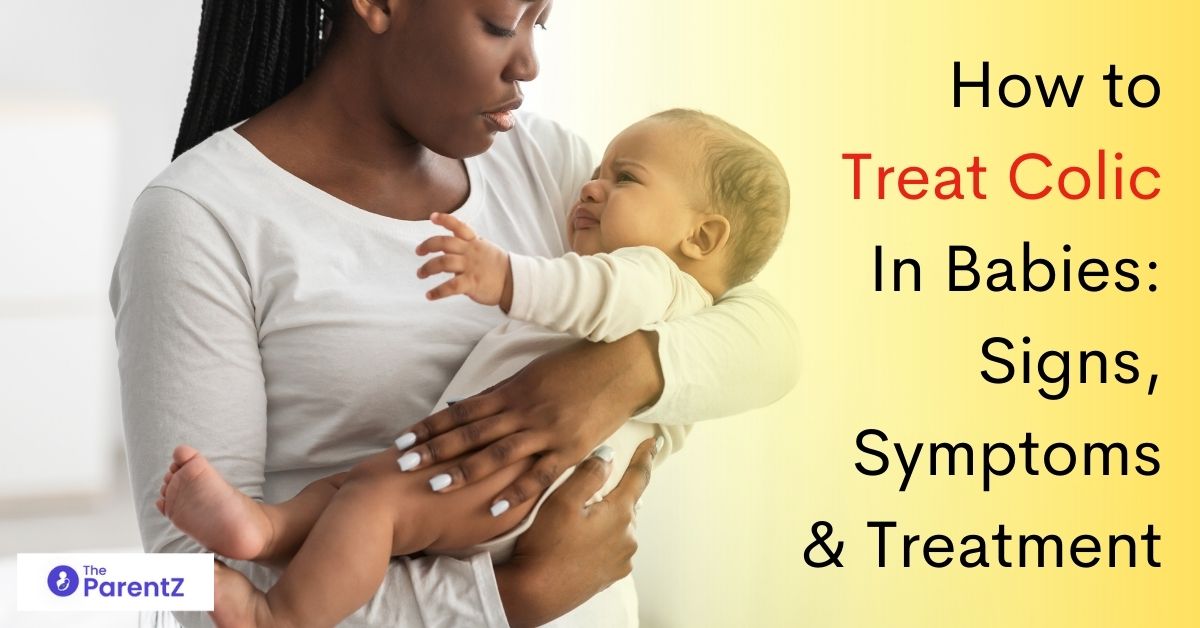With the arrival of a new member of your family, comes new responsibility. Along with a healthy baby, comes a lot of happiness and fun. However, if your baby starts suffering from a health issue, it is both a harrowing time for both parents. It is especially so for the caregiver. Understanding the symptoms of baby colic is very important. Often, you will find your baby crying for no reason. It may be for no reason, or there might be a very big reason. You need to find out. Until and unless your baby grows up, he cannot speak for himself. Firstly, we need to know about the disease, symptoms, and manifestations.
What Is Baby Colic?
Before we start discussing How to Treat Colic in Babies? Let’s first, understand what colic is. Colic is a condition in babies, in which babies cry continuously. These crying routines start when the baby is about 2-3 weeks old.
What Causes Colic in Babies?
Colic can occur due to a number of reasons. Doctors are not cent percent sure why colic happens. The baby might get excited due to the sights and sounds. The baby can develop sensitivity to the food that the mother is eating. They may also have problems controlling their emotions. You have to understand that colic is not exactly an illness.
Baby Colic Signs And Symptoms
You must be anxious to know more about infantile colic, right? You should be worried if you are a mother. Look for the symptoms and signs to understand if your baby has colic.
- You can notice your baby stretching his legs till the utmost limit, or pulling it on his tummy. You can understand this and look for the next signs.
- Your baby also tends to arch his backbone while crying. This is another sign.
- The baby gets red flushes on his face. If this happens, then do not wait further.
- The baby will also show a fist while crying.
- You can sometimes feel that he is in a lot of pain.
- If your baby passes a lot of gas, then it’s definite. Your baby has colic.
How to Control A Baby With Colic?
Now, when your baby has colic, you will need to show a lot of caution. Once the baby starts crying, you can do a whole lot of things to minimize his discomfort. You can take the baby in your arms and rock the baby. You can give your baby something to play with so that his attention gets diverted. The baby is yours, so hold it against your chest and walk here and there. The contact will calm him.
Play some light music, so that your baby is distracted. You can also take your baby on a motion car. The motion will help a lot to ease out the sickness. Give the baby a warm bath. It will relax the baby’s body to a large extent. Or better still, leave it in its carrier. Give the baby some me-time.
Now, if all else fails, you need to consult a doctor. But, knowing the right time is extremely important. If you see that your baby is not responding to these tactics, it is time to visit the doctor. Maybe your baby needs a doctor’s attention. If your baby is continuously crying, its not good for his health and heart as well. Take an appointment with the doctor and take your baby there. You have to take action fast to avoid any mishaps later. Your doctor will be the best person to guide you on this.
Also, take care to ward off the reasons why colic occurs. See to it that your baby is getting adequate food, not swallowing too quickly, or living in a stressful place.








Be the first one to comment on this story.